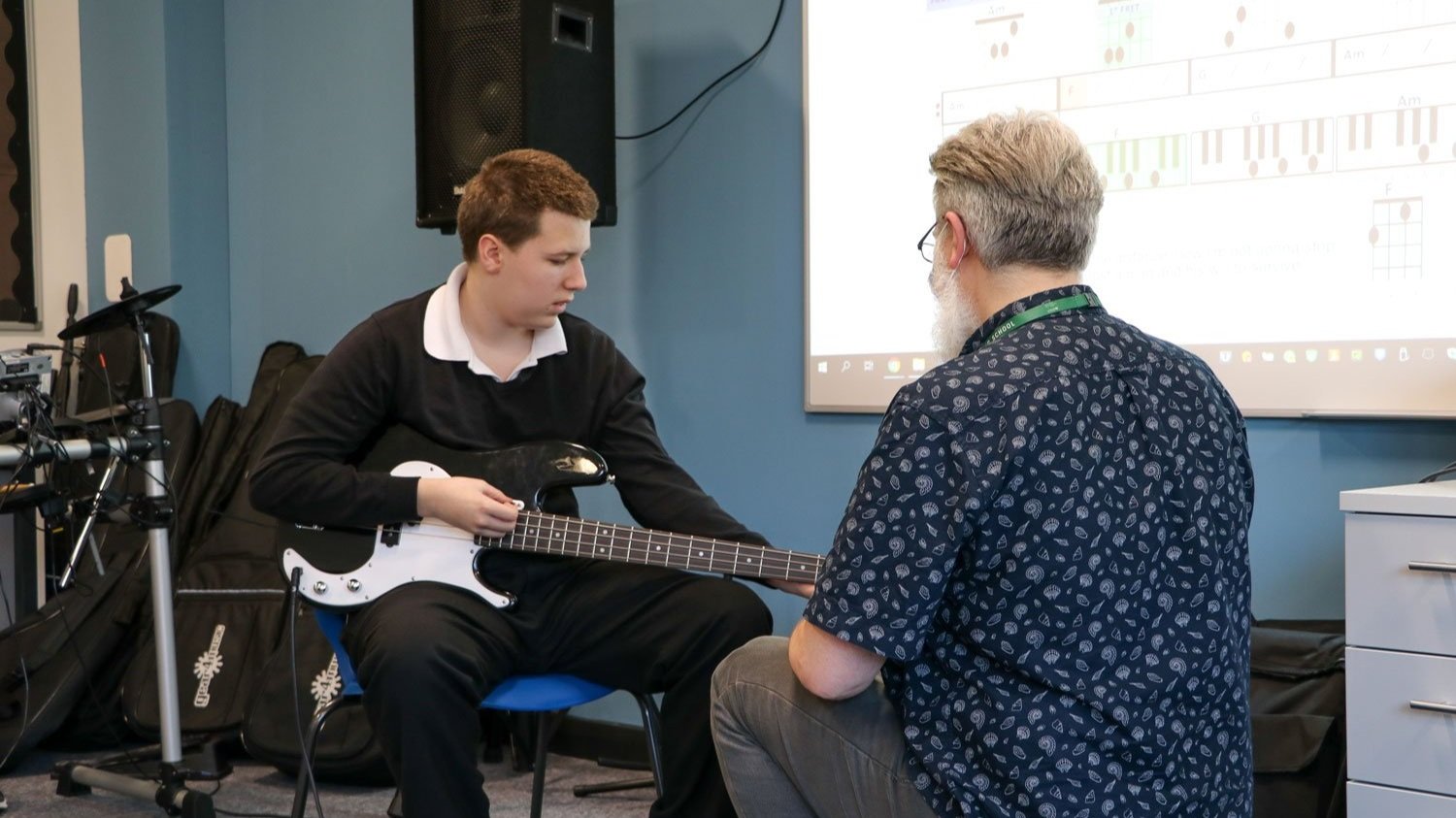Article 12: Every child has the right to have a say in all matters affecting them, and to have their views taken seriously.
Article 31: Leisure, play and culture - Every child has the right to relax, play and take part in a wide range of cultural and artistic activities.
We are a Unicef Rights Respecting School. The Rights Respecting School Award puts children's rights at the heart of schools in the UK.
We aim to be a safe and inspiring place to learn, where children are respected, their talents and nurtured and they are able to thrive.
The Rights Respecting Schools Award embeds these values in daily school life at Oscott Manor School and gives children the best chance to lead happy, healthy lives and to be responsible, active citizens.
School Structure
Oscott Manor School currently has 17 classes across the three key stages: KS3, KS4 and KS5.
Pupils are grouped according to their ability and educational needs rather than in year groups (stage not age).
There are five learning pathways that run across the three Key Stages. Each class has a differentiated curriculum overview, which identifies units over across each term, in line with the academic ability of each class group.
We recognise that our pupils need a bespoke curriculum and may need to move between pathways if their ability levels vary from subject to subject. Both academic and social/emotional progress are considered when placing pupils onto the correct learning pathways, as well as their preferred assessment style.
We acknowledge that some pupils will fluctuate and excel in specific parts of the curriculum. Where this is the case, pupils are given the opportunity to work across different curriculums. For example, a semi-formal pupil who excels at numeracy will access formal numeracy sessions. We also have the opportunity to bring in subject experts to allow our pupils to access higher qualifications if they show a particular talent for a subject.
Formal Curriculum
Our Formal Curriculum is a subject specific curriculum, which has been adapted to cater for the needs of our pupils. The curriculum is not related to age, but rather where pupils are at within their learning journey.
Within this learning pathway, our pupils follow a National Curriculum based curriculum but also bring in elements of developing independence, life skills and thinking and problem solving, building on and consolidation skills.
This begins their preparation for adulthood and gives them the opportunity to make their skills and knowledge functional.
Assessment Range:
Pathway 1: P11 to P18
Pathway 2: P10 to P1
Accreditations Routes:
GCSE, BTEC Level 1 & 2, Functional Skills Level 1 & 2, Entry Level 3.
Target Destination:
Further Education, Apprenticeship and Employment.
Subject coverage within the Formal Curriculum in KS3

Topic Curriculum
This curriculum is planned around termly topics, an appealing and stimulating approach to learning with cross-curricular opportunities created through carefully chosen topics, which change termly. This exciting method inspires the pupils to learn all the traditional subjects in the curriculum in a much more approachable and exciting manner, as well as providing support and challenge for all pupils.
A firm emphasis is placed upon the teaching and learning of core subjects, where the pupils have daily English and mathematics lessons.
Assessment Range:
P8 to P10
Accreditations Routes:
Entry Level 1 & 2 and 3, Entry Level certificates.
Target Destination:
Further Education, Supported Employment.
Subject coverage within the Formal Topic-based Curriculum in KS3
Pre-Formal Curriculum
This is curriculum is a person centred, holistic curriculum, designed for pupils to develop the highest level of independence, as possible and builds on skills. It aims to give pupil an environment, which they can explore understand and encourages them to build routines, facilitate changes and make choices. This is a non-subject specific learning pathway and is planned around termly topics, which incorporate key skill areas. It aims for pupils to develop the highest level of independence as possible.
Assessment Range:
P5 to P8
Accreditations Routes:
OCR Life and Living Skills, AQA Unit Awards (Pre-Entry to Entry 1).
Target Destination:
Further Education, supported colleges, community based supported work.
Subject coverage within the Pre-Formal Curriculum in KS3
Key Stage 3
Transition into the school is an important part of Key Stage 3. We visit all of our new starters in their primary school setting before they join the school.
This gives us the chance to meet them, greet them and speak to the school staff who know them best before they join the school. Each of our new starters will also have a home visit before they start so that transition staff can meet parents/carers and seek as much information as possible to make the transition successful. The Key Stage 3 curriculum offers a broad range of subjects and many practical opportunities for pupils to apply the knowledge they have learned.
Key Stage 4
The Key Stage 4 curriculum offers a wide range of accreditation routes in order that all of our pupils can gain recognised qualifications.
Some pupils engage in off site learning opportunities to help them build confidence and employability skills.
Key Stage 5
At Key Stage 5, we are preparing pupils to be as independent as possible.
Some of our pupils are travelling independently to school, some are accessing regular work placements and others are accessing opportunities within the community. The curriculum offer builds on knowledge and skills learned in Key Stage 4 and enables positive outcomes to all pupils.
Gallery
Oscott Manor School in Pictures
Support
Oscott Manor School offers a wide range of support for all pupils
From handy websites to visit to encourage further learning and support to learning packs for our pupils to complete.

























